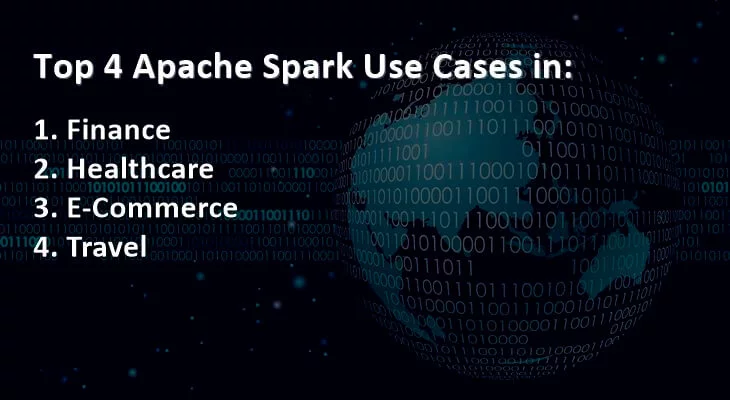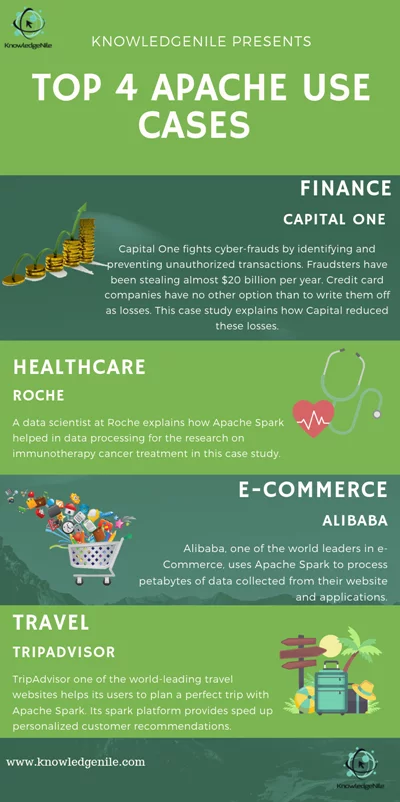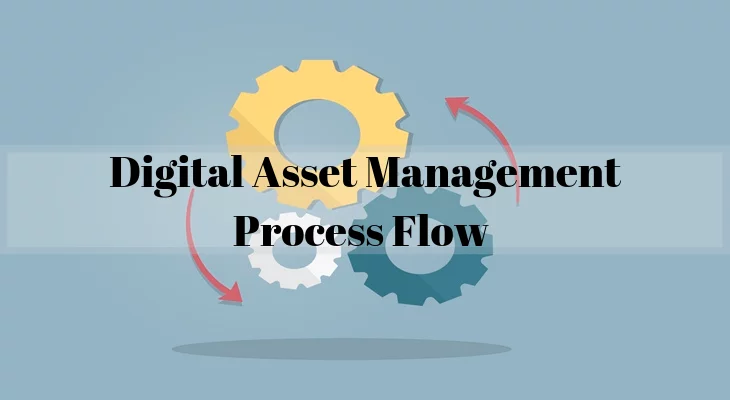Data has become an indispensable aspect of every business. Data processing and analyzing have become essential for business prosperity.
And as the data volume is increasing exponentially, data analytics tools are also becoming a must for most of the businesses.
Maintaining data hygiene and protecting your business data is not only beneficial to your business growth, but it is also necessary to stay compliant with privacy laws.
Famous American management consultant Geoffrey Moore once said,
Without big data, you are blind and deaf and in the middle of a freeway.
How does Big Data Analytics Work?
The raw data generated from websites, social media networks, and mobile applications, etc. are first extracted and then processed with tools like Apache Spark.
And when the data is processed, it is analyzed for patterns, trends, or projections with tools like R programming.
What is Spark used for?
Apache Spark is an open-source platform, and it is popular amongst users for its lightning-fast processing speed. It claims to be 100X faster than Hadoop MapReduce in memory or 10x faster on the disk.
Spark is able to generate this speed as it minimizes the number of writes on disk even at an application programming level.
Apache spark also prevents unnecessary input-output operations by processing the data in the main nodes.
Now that we have understood why Apache Spark is popular let us know more about it with the help of some Apache Spark use cases.
Apache Spark Use Cases: Applications with Examples
Big financial institutions are using Apache Spark to process their customer data from forum discussions, complaint registrations, social media profiles, and email communications to segment their customers with ease.
It helps them to analyze the credit risk assessment and to provide excellent service to the customers.
Capital One, like many other credit card firms, fights cyber-frauds by identifying and preventing unauthorized transactions.
Fraudsters have been stealing almost $20 billion per year from around 10 million Americans. Credit card companies have no other option than to write them off as losses.
In a Spark Summit session hosted by Databricks, Chris D’Agostino, Vice President of Technology, Capital One explained how spark clusters help credit card companies to track down fraudsters.
Capital One screens credit card applications with the help of tools such as Spark, Databricks Notebook, Elastisearch, etc. This helps them to set up a baseline to analyze the user data.
Once a person applies for a new credit card, analysts at Capital One can track the score based on social security number, email address and residential details.
This data is analyzed with the available database. And if there are any similarities between red-flagged data and the data provided by the applicant, the application is sent to the case management model.
This process takes hardly milliseconds. They can further check with the histograms and pattern detection to understand whether the applicant is flagged or not.
It has helped the Capital One bank to reduce the credit card frauds in huge numbers. And Chris D’Augustino was happy that these technologies enabled him to cut their losses.
Healthcare sector in America is heavily using big data analytics tools. As the volume generated through the Electronic Medical Records (EMR) is huge, they are reliant on fast processing tool Apache Spark for data processing.
But, since data privacy is mandatory and very strictly followed, all these companies have to be compliant with HIPPA.
So in order to be compliant, healthcare companies use the machine with predefined criteria. They can access basic admission details, demographics, socio-economic status, labs, and medical history without revealing their names.
Data Scientist Wei-Yi Cheng, who is a data scientist at Roche, a multinational pharmaceutical giant, spoke about the use of Apache Spark in data processing for the research on immunotherapy cancer treatment at the spark summit.
This research analyzes tumor images in an attempt to diagnose if certain types of cancer can be treated with this new immunotherapy method.
The key to this research is identifying the different cell types in cancer, including good T-cells, which our immune system generates, the bad cancer cells, and blood vessels.
As the number of cells taken under the microscope is in millions, it is very difficult to analyze them.
It is at this crucial juncture where Apache Spark comes in. Scientists are using a library package referred to as Spatial Spark to assist them in these calculations.
According to their key data scientist Wei-Yi Cheng, they load all the data into Hadoop in a Parquet format for the ease of loading and efficiency.
They use Spark to load the Parquet file. And they use Spark to calculate distances between these cells and tumors, and the blood vessels.
The results obtained with this are then put in Hadoop, and analyzed with the help of Python & Impala.
It has helped researchers at Roche with valuable insights into how the good T-cells are distributed in the tumor and their distance from the blood cells.
These results are essential to understand whether certain types of cancer are useful for immunotherapy that the company is developing.
But this project was still a work in progress when this was discussed in the spark summit. And there were a lot of new features to be added to quantify the data to gain more insights.
Alibaba, one of the world leaders in e-Commerce, uses Apache Spark to process petabytes of data collected from their website and application. Alibaba would probably be having the largest spark jobs which even go on for weeks.
Alibaba’s use of Spark is for the following purposes:
Graph inspection platform
Alibaba’s product and business teams make decisions on the basis of multi-relationship graphs of a user, website, and other data. Before using Spark, they had to rely on their instincts to make the decisions. The interactive nature of Spark and GraphX helps them to make key decisions pretty easily.
This platform provides some key metrics which help them to make the decisions based on the graphs and plain facts. These key metrics are:
- Degree Distribution
- Second Degree neighbors
- Connected Components
TripAdvisor one of the world-leading travel websites helps its users to plan a perfect trip with Apache Spark. Its spark platform provides sped up personalized customer recommendations.
TripAdvisor also uses Apache Spark to provide advice to its millions of travelers by easily comparing thousands of websites with price, commodities, and other such features.
Apache Spark helps them to read and process the reviews, prices, and features in readable format within seconds.
Things to Look Out For in Future:
We can certainly say that the future looks bright for Spark and a lot of efforts are taken to ensure Spark stays relevant in the future as well.
Apache spark received a major boost with it Spark 2.3 which integrates Kubernetes and also provides real-time processing with spark streaming.
It is expected that Spark 3.0 will be launched by this year-end or by the start of next year.
A lot of experts are predicting that spark will have smoother integrations with deep learning platforms and it will also be focused on emerging AI technologies.
Understanding Apache Spark Use Cases Via Infographic
You may also like to read:
Importance of Data Analytics for Financial Services






